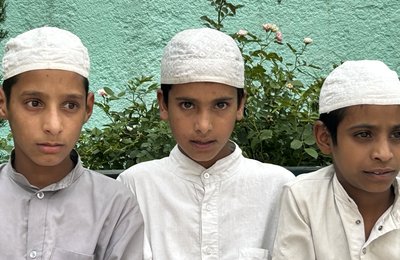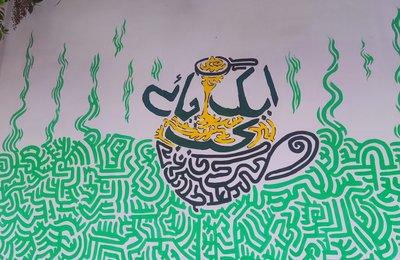The Anti-Racism Movement (ARM) is a non-governmental feminist organization that works with migrant workers and activists in Lebanon. Our mission is to decrease racial discrimination and abuse in Lebanon on the social and institutional levels by advocating for structural change in the systems that perpetuate racist exploitative practices. Through direct action, advocacy, and community building initiatives, we work for more just social and institutional frameworks in Lebanon.
Our Context
More than 250,000 women migrant domestic workers live and work in Lebanon and are excluded from the Lebanese Labor Law. Instead, their lives and the lives of other migrant workers are governed by the exploitative Kafala (sponsorship) system, which is a legal framework that ties workers’ legal status to a pre-defined employer/sponsor, making them completely dependent on this employer for income, shelter, health, and legal residency. The Kafala system creates a situation that has been described as “modern-day slavery”, since many migrant workers are trapped by employers who withhold their wages, abuse them, and/or lock them in houses, without facing any repercussions.
The Lebanese state absolves itself from its responsibility to provide its residents with the basic services they are entitled to (e.g. affordable childcare, elderly care, etc.) partly through the exploitation of migrant workers as cheap labor, which is legitimized through racist and sexist discourses. Domestic work is not recognized as labor; it is feminized, devalued, and not properly compensated. The structural vulnerability of migrant workers, especially migrant domestic workers, makes their community organizing and activism very difficult.
What we do
We believe in radical community engagement and maintain a vibrant base of volunteers and members who work collectively on different initiatives. We aim to make significant improvements in the quality of life of migrant workers in Lebanon, and to contribute to a strong powerful migrant civil society, with a focus on women as leaders of change.
Most of our current work is with migrant domestic workers, as we provide resources that sustain community networks and support migrant workers and their initiatives. We also promote collaboration between local activists and migrant workers, develop strong advocacy activities and campaigns for structural change, and collaborate with different groups against racial, gender-based, and citizenship-based abuse and exploitation in Lebanon.
In 2011, in collaboration with MDWs, the Anti-Racism Movement (ARM) established the first migrant community center (MCC), a free and safe space dedicated to migrant domestic workers (MDWs) in Beirut where they can meet, learn new skills, organize initiatives/campaigns, and access needed information/assistance. MCC supports MDWs’ community networks, quality of life, and capacity to self-advocate.
Given the very limited opportunities available for MDWs living outside Beirut to develop their capacities for self-advocacy, we established two additional MCCs in the cities of Saida and Jounieh and increased the support and training available at the three centers for MDW-led initiatives. So far, each of them has hosted more than 25 regular classes and has more than 150 regular monthly visitors.
Since 2014, we’ve also been organizing awareness sessions with young children in private and public schools in Lebanon. In these sessions, we discuss diversity and anti-discrimination, with a focus on the lives and cultures of migrants in Lebanon.
Since 2011, we’ve established and sustained three vibrant community centers for women migrant domestic workers across Lebanon. Over 4,000 migrant domestic workers have engaged with our centers in different ways during the past three years. In addition to our daily classes, we’ve organized over 200 capacity-building workshops/info-sessions, and supported the development of over 50 migrant-led grassroots initiatives. We are committed to movement-building activities for systemic change.
In fall 2017, we formally started a case management team after many years of informal support of migrant domestic workers and migrant workers seeking assistance related to labor abuse, violence, medical needs, psychosocial support, detention, deportation, and beyond. Since then, we have documented and addressed more than 200 cases, many of which involve families and thus impact at least 500 people. These cases include passport confiscation, unpaid wages, labor and physical abuses, paperwork issues such as birth registration, detention, hate crimes and racist violence, repatriation, and sponsorship releases (tanazol).
We provide access to information for workers, advice on rights and procedures, referrals, and advocacy with embassies, employers, and recruitment agencies. Our staff also supports medical and mental health needs, sexual and reproductive health, UNHCR asylum claims, needs for shelter, and education access. We have conducted extensive mapping of existing support services accessible to migrant workers and their communities in Lebanon, including local and international NGOs, hospitals and medical clinics, and mental health centers. We partner with many for direct referral pathways and more affordable services, and advocate for expanded access to resources and rights at the local, national, and international levels.






